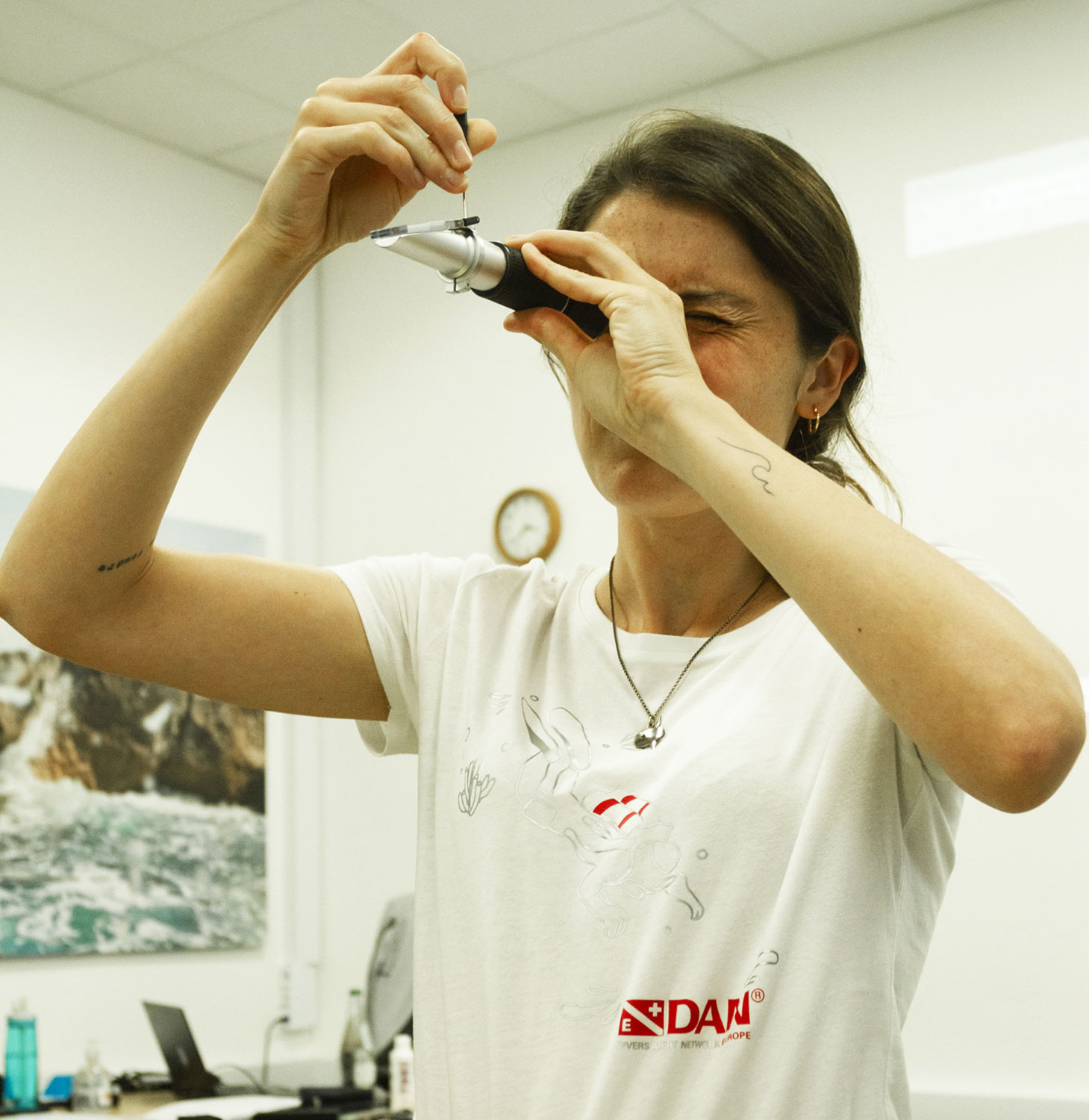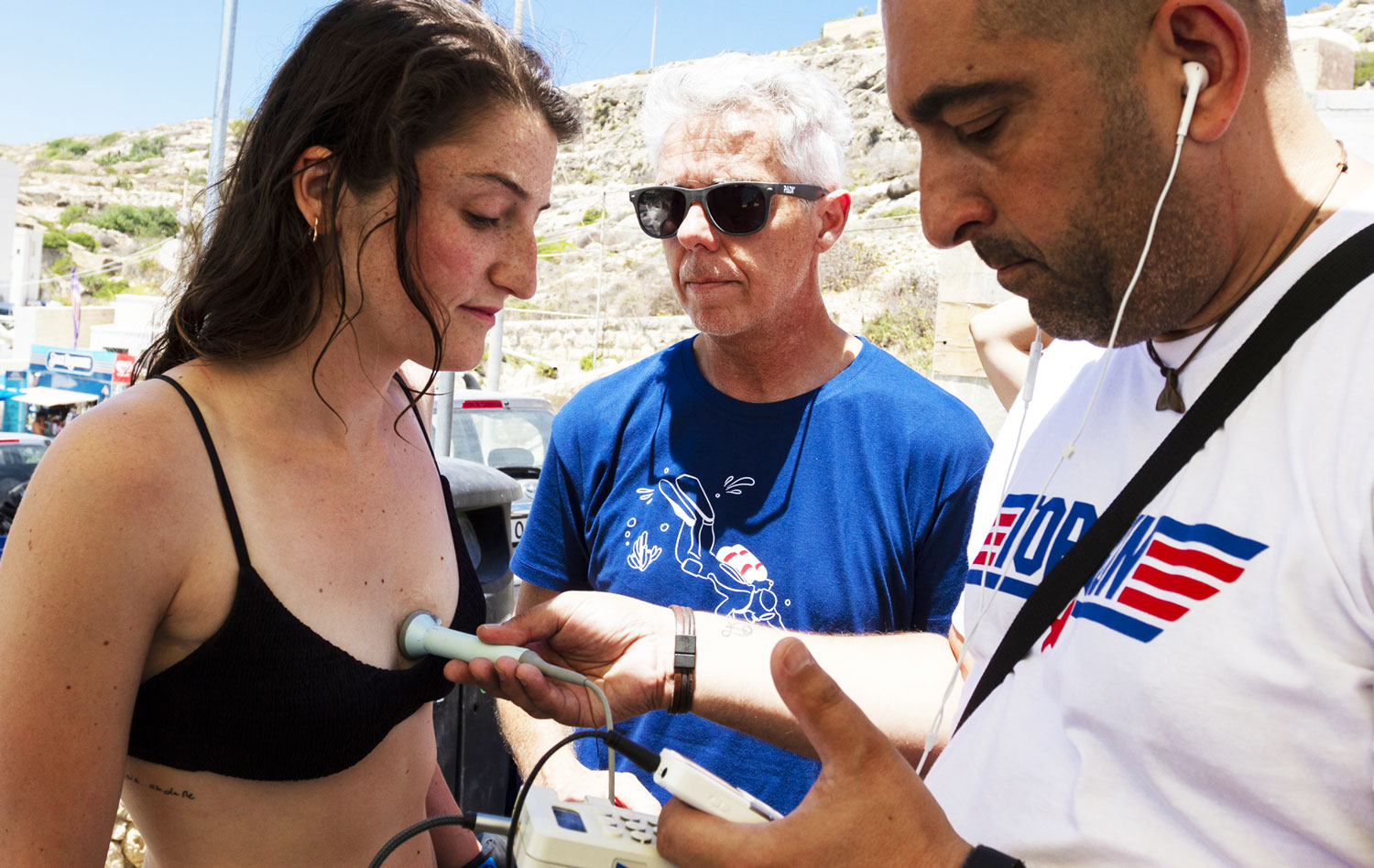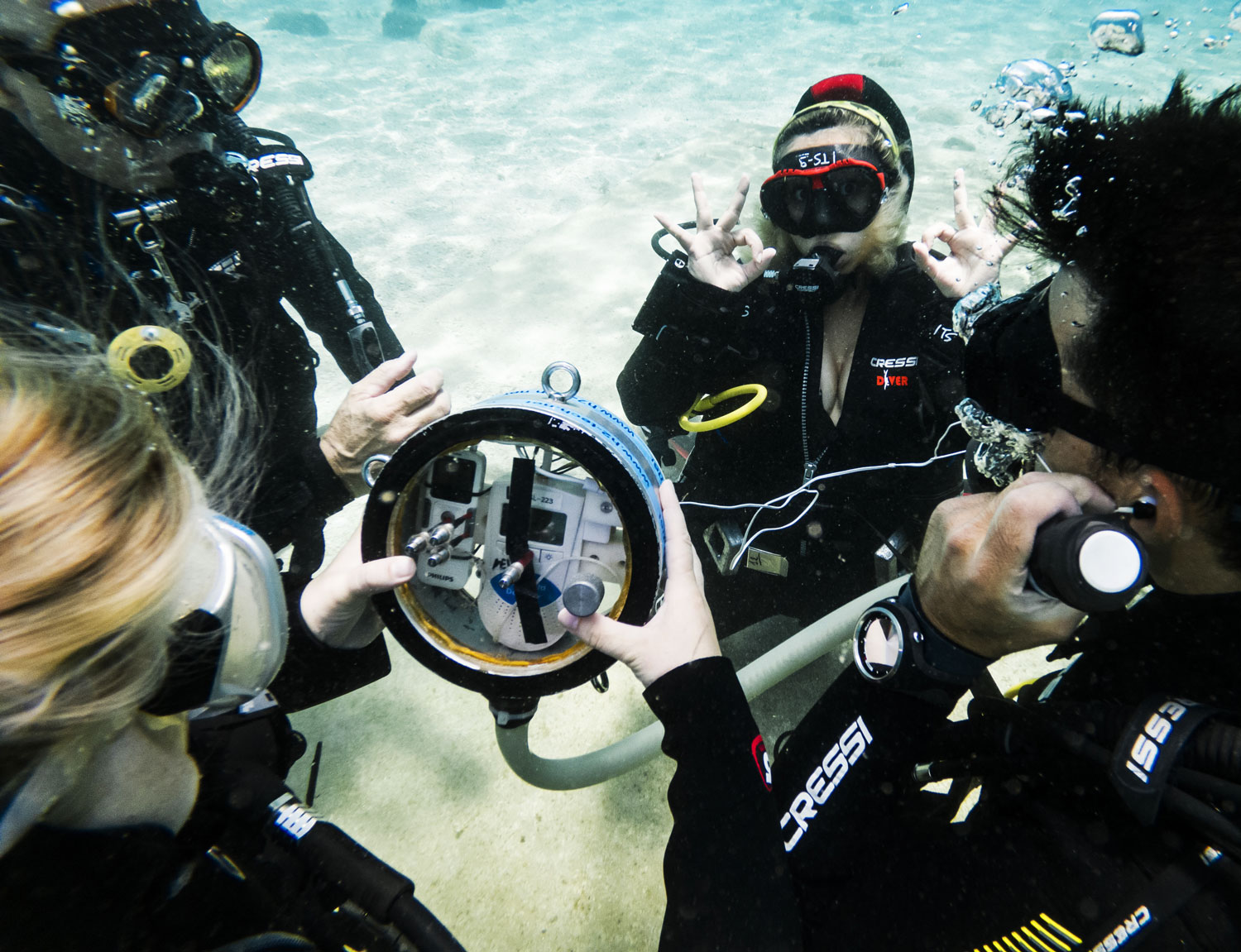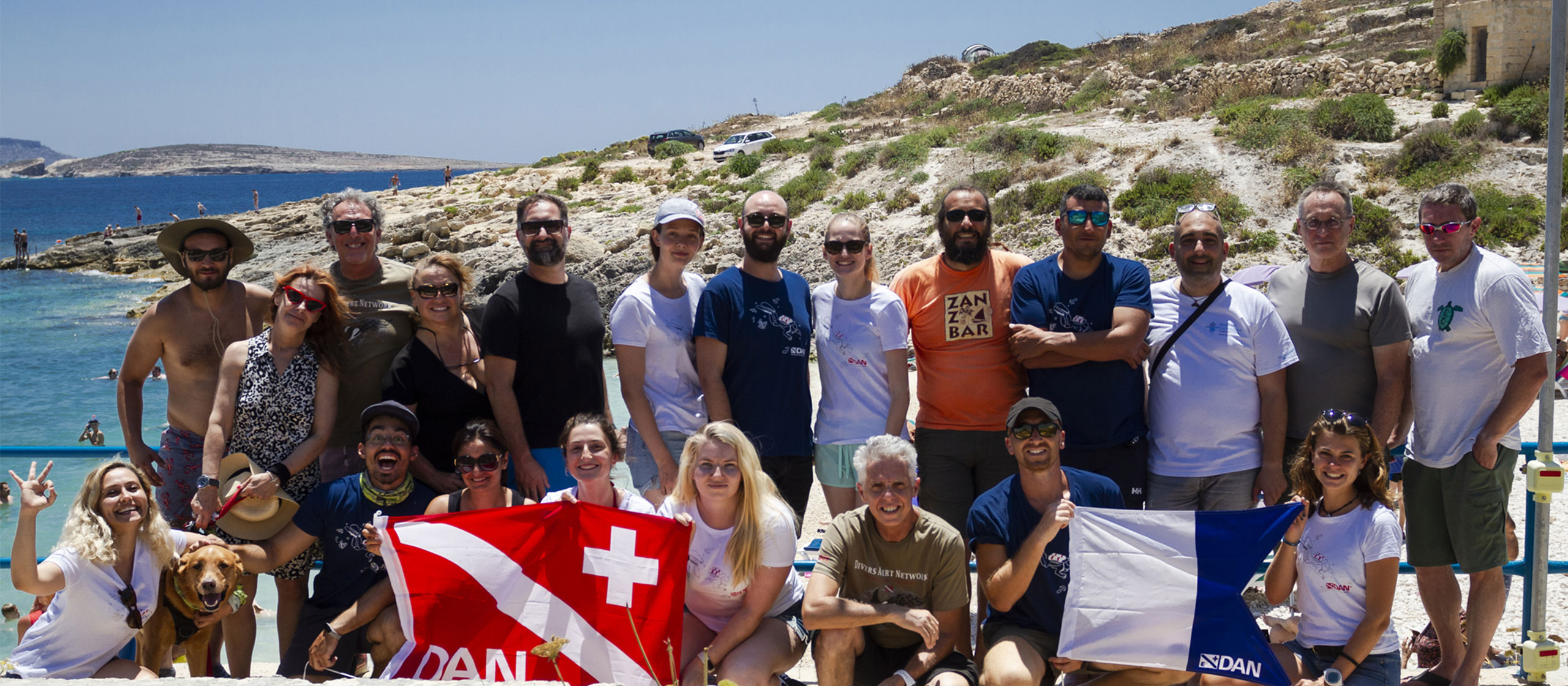DAN Europe Internship
Learn, dive, care, change. Two weeks in the world of diving safety with DAN Europe
Sometimes it's hard to find the proper words to describe our experiences, but I will still try to take you with me on my adventure at the Institute of Tourism Studies (ITS) located on the island of Gozo, the headquarters of DAN Europe’s 2022 internship.

My two weeks as an intern have been a full immersion into the world of DAN Europe. It’s been an honour for me as both a biologist and as a diver, and I’m grateful to have had this opportunity. It’s been a full two weeks of immersion into marine conservation, physics, physiology, and the pathophysiology of scuba diving; two weeks trying to understand the most important rule in diving, and that is SAFETY, both for the ocean and for divers.
Safety for the ocean means that unless we care about ocean conservation and protect her waters, there won’t be any scuba diving. The environment must be preserved for us and for the future generations; the ocean is arguably the most important treasure that we must preserve, particularly in light of climate change. Fortunately, DAN Europe is completely involved in marine conservation. With projects to raise awareness about climate change effects on marine ecosystems such as the “Sustainable Tour,” and numerous Citizen Science monitoring projects, DAN Europe’s goal is to spread and encourage sustainable thinking among divers in order to protect our ocean home.

At the same time, diving safety is, of course, one of the milestones of DAN Europe research. Notwithstanding the importance of safety in scuba diving, not all divers are aware of the risk inherent in their diving activity, and sometimes, even though there is a lot of information available, many divers still lack a basic understanding of this important topic.
During the first week of the internship, we learnt about physiological reactions of the human body to compression and decompression during diving, the importance of risk analysis, how conservatism can be added to dive profiles through the use of gradient factors, and the importance of real time monitoring in understanding real time reactions of divers to immersion and the environmental changes in pressure.
In addition, we participated in the DAN Basic Life Support & Defibrillation (BLS-D) provider course and learned how to perform basic life support and how to use an Automatic External Defibrillator (AED). The second week has been dedicated to practical activities and data collection. We conducted urine tests pre and post diving, and also echocardiogram doppler and subclavian doppler pre and post diving. DAN Europe is also working with amazing new techniques of conducting underwater dopplers and real time underwater ECG monitoring.


Investigating the body’s reactions to immersion and pressure is just the beginning. With the Diving Safety Lab (DSL) software, we have been able to combine dive profiles with medical data in order to calculate the “weight” of each dive through risk analysis. The idea for the future is to have complete monitoring of your body response and be able to modify your dive profile and decompression gradient factors accordingly in real time.
These two weeks of internship have provided an incredible opportunity to share ideas and knowledge with people from different countries, and backgrounds including engineers, doctors, biologists, bio-technologists, and neuroscientists, all with different diving certification levels and experiences. Everyone contributed. Clearly, there is an ocean of data to be collected and so much research that remains to be done. The future of diving won’t be about perfecting a generalised decompression algorithm, it will be about measuring the real time, physiological response of each diver to the dive itself, and adjusting their profile accordingly.

About the author
Francesca De Witt is a Conservation Biologist and Coral Ecologist in love with marine life. Her interest in physiology increased exponentially along with her passion for diving which started when she was in Bologna studying at the Scientific Diving School. She mostly dived in Italy, but also in the Red Sea, Canary Islands and Malta, however her bucket list is full of many more diving spots.


